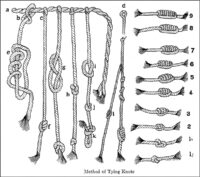Strangely, it seems as if the very forces that could bring us together are tearing us apart. Internationally, the ability to communicate globally and establish common ground is giving way to fragmentation and isolationist policies. Nationally, the values of liberty and equality are giving way to entitlement and victimization. Locally, economic development simultaneously generates an excess of personal wealth and an increase in systemic poverty.
A similar process is taking place in the arena of identity. The inexorable urge towards emancipation dominates the history of the past 500 years. Slowly but progressively, freedom and equality have been granted to people who previously were slaves or were otherwise treated as second- or third-class citizens, such as African Americans, women and homosexuals. There have been periods of retrenchment during which social and political backlash slowed down the process of emancipation; overall, however, the arc of history leans towards freedom.
Yet we now find ourselves in a technological age like no other. Never before have tools existed that so readily allow people to connect and form affinity groups based upon identity. In this way, both progressive and regressive social attitudes find adherents, who are then able to organize, proclaim an identity and make efforts to influence others. The Black Lives Matter movement, for example, began in response to the spate of accounts and video recordings of the killing of blacks by law enforcement. Black men in America suffer a long, sorry history of lynching, imprisonment, cruelty and economic discrimination; their fight for emancipation is long-standing. Now, however, nativist white men are mobilizing under a “white lives matter” banner. One movement engenders its counter-movement; this is not new. What is new are the communications and media tools facilitating this process.
Our technology is speedy, hurrying the growth of identity politics, and with it the fragmentation of society, a phenomenon of “re-tribalization.” In a world of over seven billion people, even small percentages add up to many people, now able to easily find each other. The spectrum of human types is nearly infinite, and so too is the identity potential. Within our rights-driven, ever-more-individualistic society, emancipation-by-identity quickly assumes the mantle of entitlement, and society is expected to adapt. Adaptation does occur, but not without conflict.
Here in Sonoma Valley, the conflict of class identity is becoming sharper. The super-wealthy identify themselves as entitled to pursue their personal goals as vigorously as possible, and have the money to do so; they want to build hillside mansions and pricey hotels. Those who identify as low-income renters actively pursue legislation to constrain landlords from imposing rent increases or eviction, but have the disadvantage of little money to do so; they want rent-controlled housing. Both sides feel entitled, but the power dynamic is anything but equal.
Sorting out identity, emancipation and entitlement is complicated, and left to government and the courts, ends up adjudicated as a matter of “rights.” Those who identify as originalists look to our Constitution for guidance. This does not solve the social problems of a fragmented society, however, nor does it forestall new fragmentation into yet more finely-grained identities.
Finding common ground is difficult, but the alternative is greater conflict. Unless we can reestablish social unity and sort out the imperatives of individualistic identity politics, our problems will only expand.






I am skeptical that ‘re-tribalization’ is a thing. Certain white men (and women) -many of whom are in the Trump Superfan club -aren’t really turning into a tribe, so much as they are upset at the perceived loss of social dominance. It used to be, not so long ago, that being white (and some flavor of Protestant-Christian) was considered default American. For a time being Catholic was suspect, but white ethnic Catholics (Irish, Italian, Polish, etc) eventually become more-or-less accepted into the default-American club.
The fact that people viewed as non-default Americans – people of minority religions (or none at all), people of color, LGBTQ, and women who don’t want to live like it is 1950 any more have been pushing the boundaries. The old school “Default-Americans” perceive the expansion of rights and freedoms as a loss of their social power and dominance. And they do not like it one bit. Never mind that the rest of us just want to be treated like humans, and we have no interest in depriving others of their basic humanity or civil rights. No, in general, it is human nature to fear losing perceived status. The angry default-Americans need to learn to embrace the rest of us as their fellow humans – and they might find that working together on issues that affect all like economics, environment, education, and infrastructure that we non-default-Americans are not so scary after all. But we cannot do that work for the default-Americans, they must be willing to make that leap for themselves.
This attitude of maintaining power at all costs has been here on Turtle Island since the beginning of colonization. The colonists wanted to create wealth, fast – the cost in genocide and torture bedamned. Unfortunately, I don’t see that this early colonial attitude ever went away – the roots of the thirst of grabbing or maintaining wealth and power (no matter how small) and bedamned to the consequences is still with us. I have come to call it a form of Wendigo sickness of the soul. Instead of an endless hunger and eating literal human flesh, like the original Wendigo stories, the new Wendigo sickness is the sickness of insatiable greed.